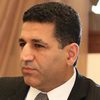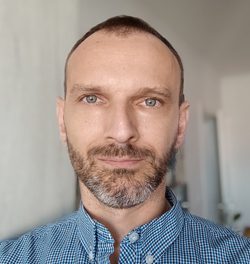
How do emerging cyber technologies impact peacekeeping operations and mediation? DiploFoundation will be at the EAPTC2019 to explore the challenges and opportunities.
The 7th Annual Meeting of the European Association of Peace Operations Training Centres (EAPTC) will take place on 16-18 April 2019 in Belgrade, Serbia. The EAPTC will be hosted by the Conflux Center, a politically independent and impartial international organisation, that promotes international co-operation, intercultural dialogue, and mediation as essential tools in addressing the challenges and threats to world peace and security. The 7th annual EAPTC meeting will focus on several topics related to peace-keeping and act as a platform for discussions on how training development can follow the ever-changing demands in peace operations and help overcome the gap between aspiration and reality.
One of the most prominent topics of this year’s event is the impact of new technologies – in particular, those that are Internet-related – on peacekeeping operations and mediation. To provide a creative space for exploration, Diplo will organise a CyberLab – a simple, quick, and straightforward simulation of new technologies and emerging concepts – to enable diplomats, trainers, and peacekeeping practitioners to better understand new technologies. The CyberLab will provide them with hands-on experience with cryptocurrencies and blockchain, 3D printing, cyber-attacks, (big) data analytics, and augmented and virtual reality, through ‘guided tours’ provided by experts that understand technological, policy, and diplomatic perspectives. The CyberLab will provoke brainstorming on particular opportunities and challenges of emerging technologies for peacekeeping operations, following the successful model implemented at the OSCE Chairmanship event in Belgrade, the 22nd OSCE Ministerial Council in 2015, and other events.
The panel ‘Peacekeeping in the Digital Age: From Online Training to Cyber-Attacks’, co-organised by the Conflux Center and Diplo, will focus on various good practices in online learning for diplomats, mediators, and peacekeepers (featuring showcases by UNITAR, Trinity College Dublin, Peace Operations Training Institute, and DiploFoundation), and discuss training needs in the field, available and useful methodologies, cost-effectiveness of various models, and ways to build partnerships among training institutions. The second part of the session will zoom out to look at harnessing emerging technologies, the impact of the online world on democracy and democratic processes, cybersecurity risks, the importance of data-protection for peacekeeping, field operation experiences with new technologies, and the potentials of data analytics, augmented reality, 3D printing, artificial intelligence, and blockchain. Vladimir Radunovic will moderate the panel, while Andrej Skrinjaric, Arvin Kamberi and Ambassador Amr Aljowaily, Ambassador of Egypt to Serbia and a senior lecturer with Diplo, will contribute to the discussions.
![[Briefing] Internet governance in April 2019 2 Book, Comics, Publication, Page, Text, File](https://diplo-media.s3.eu-central-1.amazonaws.com/2016/11/GIP-Briefings.jpeg) [Briefing] Internet governance in April 2019
[Briefing] Internet governance in April 2019




